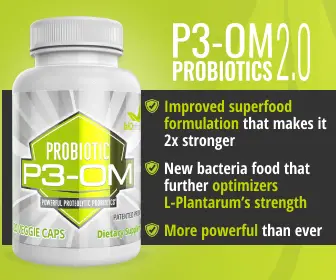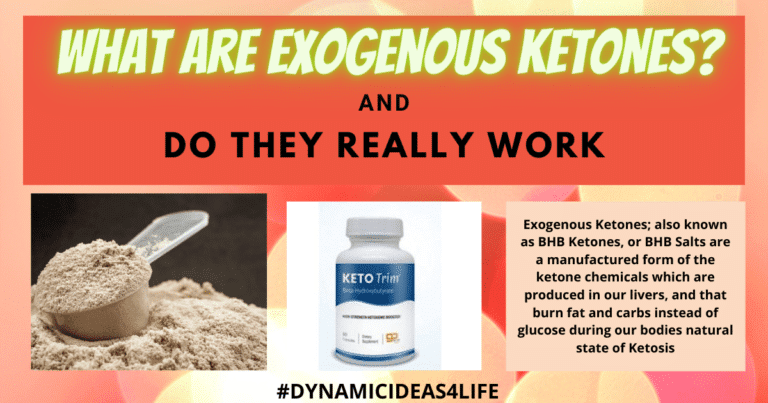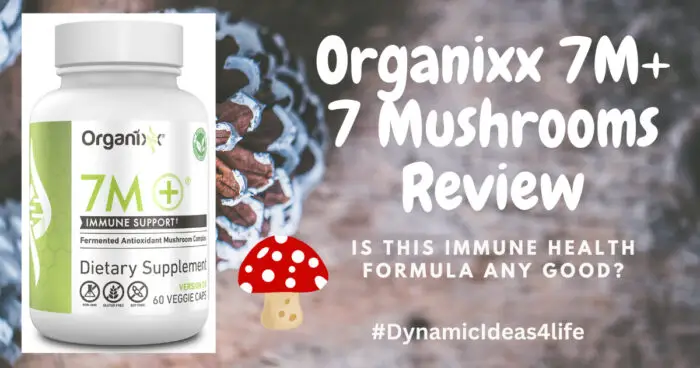Maintaining a healthy gut is essential for overall well-being. The gut plays a crucial role in digestion, nutrient absorption, and immune function. Additionally, research has shown that gut health is closely linked to inflammation levels in the body.
Chronic inflammation can lead to a variety of health issues, including autoimmune diseases, digestive disorders, and mental health problems. All things which can make life very difficult but fortunately, there are several Supplements for Inflammation Relief that you can try.
When inflammation becomes chronic, it can disrupt the delicate balance of the gut microbiota, leading to dysbiosis – an imbalance of beneficial and harmful bacteria in the gut. Dysbiosis, in turn, can perpetuate gut inflammation, creating a vicious cycle. By targeting gut inflammation, we can potentially address not only digestive issues but also other systemic health problems related to chronic inflammation.
For this purpose, we have 5 different supplements to share, and we will continue here…
FTC Disclosure:
Please note that this article contains affiliate links. Certain links within this content if you click and this leads to you making a purchase then I may receive an affiliate commission. The price you pay will not be affected.
Any questions please free free to contact me at chivs86@dynamicideas4life.com
The Top 5 Supplements for Inflammation Relief
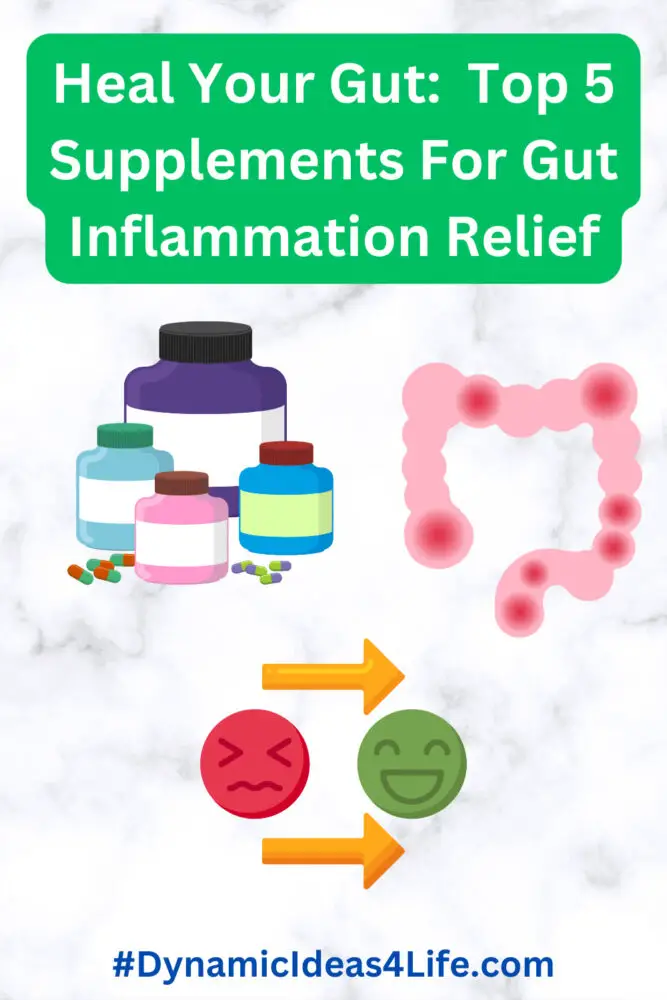
The gut is home to trillions of bacteria, fungi, and other microorganisms that make up the gut microbiome. These microorganisms play a vital role in maintaining overall health.
They help break down food, produce essential nutrients, and regulate the immune system, but when the balance of these microorganisms is disrupted, it can lead to various health problems.
The gut-brain axis is another important aspect of gut health. Through this connection, the gut and the brain are linked through a complex network of nerves, hormones, and chemicals.
This connection allows for communication between these two organs, and research has shown that imbalances in the gut can directly affect mental health and contribute to conditions such as anxiety and depression.
Furthermore, the immune system is closely linked to gut health. The gut is responsible for about 70% of the body’s immune system. A healthy gut microbiome helps regulate immune function and prevent the overactivation of the immune system, which can lead to chronic inflammation.
The Link Between Inflammation and Gut Health
Chronic Inflammation is a condition in which the body’s immune system is constantly activated, leading to damage to tissues and organs. It is associated with a wide range of health problems, including;
- Heart Disease,
- Diabetes, and
- Autoimmune Disorders.
In relation to this, an unhealthy gut can contribute to chronic inflammation. When the gut microbiome is imbalanced, harmful bacteria can proliferate, leading to an increase in inflammation levels.
Additionally, a leaky gut, a condition in which the lining of the intestines becomes permeable, can allow toxins and bacteria to enter the bloodstream. This can also trigger an immune response and inflammation.
One reason why promoting a healthy gut is an effective way to reduce inflammation levels in the body.
By restoring the balance of the gut microbiome and improving gut integrity, it is possible to alleviate chronic inflammation and improve overall health.
Exploring The Top 5 Supplements for Gut Inflammation
According to our research 5 Supplements for Inflammation Relief can be considered by those that are looking to help manage this condition more effectively. These are by no means the only supplements that might be able to provide results but they are definitely some that you can have some confidence in giving a try. I will begin with perhaps the most logical option which is Probiotics.
1. Probiotics: The Key to a Balanced Gut
Probiotics are beneficial bacteria that can help restore the balance of the gut microbiome. Naturally, Probiotics can be found in fermented foods such as yogurt, sauerkraut, and kimchi amongst other things. Pickles, preserves, and really anything fermented such as dairy products (Milk, Cheese, and Cream) contain probiotics.
In the body, Probiotics help promote a healthy gut by crowding out harmful bacteria, with good bacteria. This in turn is great for many things including improving digestion and enhancing immune function.
In hindsight, Probiotic bacteria can help alleviate symptoms of digestive disorders such as irritable bowel syndrome (IBS) and inflammatory bowel disease (IBD).
They can also help with Bloating, Gas, Constipation, Diarrhea, and Acid reflux.
What Probiotics Are Best For Gut Inflammation?
When it comes to choosing the best probiotics for gut inflammation relief, several strains have shown promising results in scientific research. These include the following 5 types which I will share below;
- Bifidobacterium bifidum: This probiotic strain has been shown to reduce gut inflammation by promoting the growth of beneficial bacteria and inhibiting the growth of harmful pathogens. It also helps strengthen the gut barrier, preventing the penetration of harmful substances and reducing inflammation.
- Lactobacillus acidophilus: Known for its ability to produce lactic acid, L. acidophilus creates an environment in the gut that discourages the growth of inflammatory microbes. It can also help modulate the immune response, which is another way of reducing inflammation and promoting better gut health.
- Lactobacillus plantarum: This strain is particularly effective in reducing gut inflammation due to its ability to produce compounds that protect the gut lining and alleviate inflammation. It can also help balance the gut microbiota and promote overall digestive health. {See Our Top Pick For L.Plantarum Probiotics HERE}
- Bifidobacterium longum: B. longum has shown potential in reducing gut inflammation by producing short-chain fatty acids, which have anti-inflammatory properties.
- Saccharomyces boulardii: Though technically not a bacteria but a beneficial yeast, S. boulardii has anti-inflammatory effects and can help modulate the immune system response in the gut.
*With Probiotic supplements check the labels to see what Probiotic strains are inside. DR (delayed release) capsules are good to look out for and also see what prebiotics these products include in their blend. Usually, Inulin is very popular but you should see there are others that help give these products a boost.
Recommended Probiotic Supplements To Try For Gut Inflammation Relief
- Meluka P3 Gut Builder
- Seed Health Daily Synbiotic
- MicroBiome+
- Bioptimizers P3-OM
- Bioptimizers Cognibiotics
- Other Supplements We’ve Reviewed
*Note as mentioned above take extra care when purchasing probiotics. Some brands actually sell products where the probiotics are already dead, or where the capsules dissolve so easily that the probiotics do not make it past the acidic stomach. For this purpose look for DR caps for best results.
2. Omega-3 Fatty Acids: Fish Oil Supplements
Omega-3 fatty acids are essential fats that have been widely studied for their anti-inflammatory properties. They can be found in fatty fish such as salmon, mackerel, and sardines, as well as in flaxseeds, chia seeds, and walnuts.
Omega-3 fatty acids help reduce inflammation by inhibiting the production of pro-inflammatory molecules in the body. They have been shown to be beneficial for conditions such as rheumatoid arthritis, inflammatory bowel disease, and cardiovascular disease.
*Note we have not really looked at any Omega 3 (Fish Oil) supplements on this site thus far but many claim to have experienced positive results including my own mother. I think the brand was Seven Seas but not 100% sure.
I think maybe this is a topic I will need to come back to but anyway…
3. Curcumin: The Active Ingredient in Turmeric for Gut Health
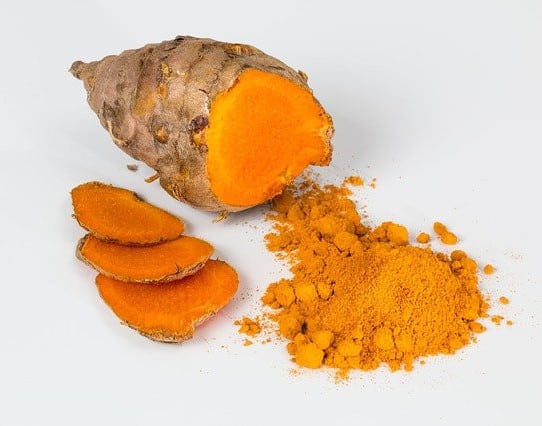
Curcumin is the active compound found in turmeric, an Ayurvedic spice commonly used in Indian cuisine. Curcumin is a powerful anti-inflammatory with antioxidant properties that has been shown to reduce inflammation in the gut by inhibiting the activation of inflammatory pathways.
This in effect can also help improve gut integrity and reduce the risk of a leaky gut and intestinal permeability. Something that can trigger widespread inflammation in not just the gut but the whole body.
So Curcumin supplements are available in capsule form and can be taken daily to promote gut health and reduce inflammation. There are many Turmeric supplements to choose from with different formulations.
However, for anyone that is interested in going down this route what we recommend is choosing an Organic Turmeric Supplement that has gone through the process of fermentation without black pepper extract.
It is also beneficial to look for products that also contain other ingredients such as ginger, ashwagandha, and also the next ingredient which I am about to share with you…
4. Vitamin D3 for Gut Health and Inflammation Relief
Vitamin D is a crucial nutrient that plays a role in immune function and inflammation regulation. It is produced by the body when the skin is exposed to sunlight and can also be obtained from certain foods and supplements.
Vitamin D deficiency has been linked to an increased risk of autoimmune diseases and chronic inflammation. In its natural role, Vitamin D is pivotal for the absorption of both Magnesium and Calcium.
Together these minerals work cohesively to help regulate many biochemical processes including communication between cells and creating the electric signals we need to maintain biosynchronicity.
This process helps to regulate our cellular activity which helps to reduce and prevent inflammation as an Immune response thus making it beneficial for both gut health and nutrient absorption.
Vitamin D3 is the type to look for in supplements. You can get this and Curcumin in this supplement HERE<<
*This supplement is my top pick currently for Joint Pain Inflammation but I do believe it also may help resolve gut inflammation too.
5. Glutamine: The Amino Acid for Gut Healing
Now, last on my list here – Glutamine is an amino acid that is essential for gut health and healing. It is the primary fuel source for the cells lining the intestines and plays a crucial role in maintaining gut integrity.
It is the most abundant amino acid in the body and serves as a crucial fuel source for the rapidly dividing cells of the gastrointestinal lining. Under conditions of gut inflammation, the gut lining may become compromised, leading to increased permeability (leaky gut) and allowing harmful substances to enter the bloodstream, triggering inflammation and immune responses.
Glutamine has been studied extensively for its potential to alleviate gut inflammation and promote gut healing. It helps maintain the integrity of the gut barrier by supporting the growth and repair of gut epithelial cells.
By enhancing the gut barrier function, glutamine helps prevent the entry of harmful bacteria and toxins, reducing the inflammatory response in the gut.
Furthermore, glutamine has been found to modulate the immune system within the gut. It can promote a balanced immune response, reducing excessive inflammation while still effectively fighting off harmful pathogens.
This immunomodulatory effect can be especially beneficial in conditions where gut inflammation is driven by an overactive immune response, such as in inflammatory bowel diseases (IBD) like Crohn’s disease and ulcerative colitis.
*Note I haven’t really done too much research on Glutamine supplements but this is an important amino acid that we need to help maintain good digestive function so it certainly is at least worth a try.
How to Incorporate These Supplements into Your Daily Routine for Optimal Gut Health
When choosing supplements for gut health and inflammation relief, it is important to select high-quality products from reputable brands. Look for supplements that contain the specific strains of probiotics or the active ingredients mentioned above.
It is also a good idea to consult with a healthcare professional before starting any new supplements, especially if you have any underlying health conditions or are taking medications.
To incorporate these supplements into your daily routine, consider taking them with meals to enhance absorption.
Follow the recommended dosage instructions on the product labels and be consistent with your supplementation routine. It may take some time to notice the effects, so be patient and give your body time to respond. It is important to note that supplements alone cannot replace a healthy diet and lifestyle.
In addition to taking supplements, prioritize a diet rich in fruits, vegetables, whole grains, and lean proteins. Avoid processed foods, sugary drinks, and excessive alcohol consumption.
Also, engage in regular physical activity, manage stress levels, and make sure to get enough sleep to support overall gut health and reduce inflammation.
In Conclusion
Maintaining a healthy gut is crucial for overall well-being and can help reduce inflammation levels in the body. By promoting gut health through the use of supplements such as probiotics, omega-3 fatty acids, curcumin, vitamin D, and glutamine, it is possible to alleviate chronic inflammation and improve overall health.
However, it is important to remember that supplements should be used in conjunction with a healthy diet and lifestyle for optimal results. Prioritize gut health and inflammation relief by incorporating these supplements into your daily routine and making positive lifestyle choices.






Anxiety and Depression best ways to lower blood sugar BiOptimizers blood pressure supplements blood sugar support supplements Digestive Enzymes Supplement digital products Dr Sam Robbins Exercise Gut Health Healthy Living heart health HFL how to lower blood sugar levels How To Lower Cholesterol insulin resistance joint health supplement Keto keto dieting Keto Diet Weight Loss leaky gut supplements leptin resistance list Magnesium deficiency Matt Gallant mental health Mind and Mood Probiotics multivitamins Nootropics nutrient supplements Probiotics Probiotic Supplements proteolytic enzymes reverse type 2 diabetes stress and anxiety stress relief vitabalance vitamin c vitapost Wade Lightheart weight loss articles weight loss diet plans weight loss product reviews weight loss supplements weight loss tea


